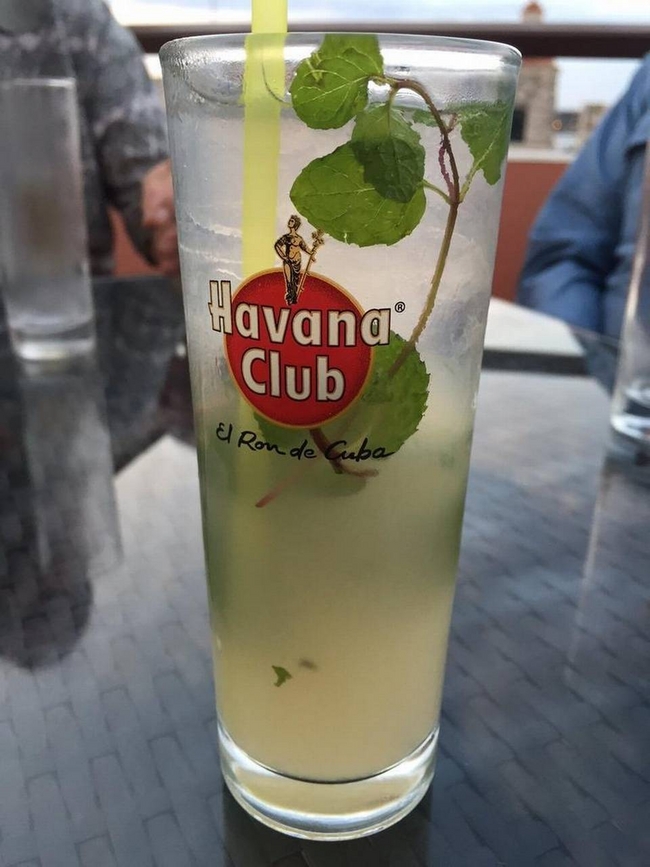Cuba prevails in Havana Club rum dispute with Bacardi
Miami Herald | Sunday, 17 January 2016 | Click here for original article

The fight pitted Bacardi against Cubaexport, the Cuban partner of French spirits maker Pernod Ricard in the worldwide distribution of Cuba’s most iconic rum — Havana Club.
Because of the embargo, Cuban-made rum isn’t even able to be sold in the United States. But with the thaw between the United States and Cuba, rum makers are looking ahead to the day when Cuba rum doesn’t just arrive in the suitcases of visitors to the island but is sold freely in the U.S. market.
The fight is about future market share in the world’s largest rum market.
On Wednesday, the trademark office informed David Bernstein, a New York lawyer who represents Cubaexport that the Cuban company’s U.S. registration of the Havana Club trademark had been renewed — but only until Jan. 27. That’s because the 10-year registration period dates to 2006 when Cubaexport was rebuffed in its attempts to re-register the mark.
Olivier Cavil, a spokesman for Pernod Ricard, said a petition has already been filed to renew the trademark for another 10-year period.
This week’s turn of events caught Bacardi by surprise, and the company plans to continue legal action for ownership of the Havana Club trademark, which includes the small figure of Giraldilla — the symbol of Havana.
“Bacardi is shocked and very concerned by this unprecedented action taken by the United States government,” the company said in a statement. “In essence, this administration has reversed long-standing U.S. and international public policy and law that protects against the recognition or acceptance of confiscatory actions of foreign governments.”
The case dates back to 1994 when Bacardi, the largest privately held spirits maker in the world, applied for a U.S. trademark for Havana Club rum after purchasing rights to the name from the Arechabala family, who made rum in Cuba and had sold Havana Club in the United States as early as the 1930s.
But after going into exile after the 1959 revolution, the Arechabalas’ registration of Havana Club lapsed in 1973. Cubaexport saw opportunity and registered the Havana Club trademark in 1976.
In the trademark fight, Bacardi — a top rum maker in Cuba before its holdings were taken over by the Cuban government after the revolution — won a string of victories in U.S. courts against Cubaexport.
Bacardi also tried to bolster its case by selling its own three-year-old Havana Club rum, made in Puerto Rico from the Arechabala family recipe, in select retail stores and high-end bars in Florida, Georgia, Massachusetts, Colorado and Michigan to establish its ownership rights through use of the brand.
In 2012, Pernod said that it had registered the trademark for another premium rum, Havanista, that would be launched in the United States after the embargo is lifted. Its label closely mimics the labels on Havana Club bottles, right down to the Giraldilla and the red circle rimmed in gold. The registration of Havanista was something of an insurance policy in case Cubaexport couldn’t get the Havana Club mark back, and it’s unclear what plans are for it now.
After the Supreme Court declined to review the case in May 2012, Bacardi waited for the U.S. Patent and Trademark Office to cancel Cubaexport’s right to use the name in the United States.
But Cubaexport filed a petition with the trademark office, saying that the registration couldn’t be revoked and remains “frozen while the embargo of Cuba is in place.”
Even though the United States and Cuba restored diplomatic ties last year, the embargo prohibits most financial transactions with the island unless they are licensed by Treasury’s Office of Foreign Assets Control.
When Cubaexport tried to get a license from OFAC in 2006 so it could pay $500 to renew the Havana Club trademark, OFAC declined, saying it had consulted with the State Department and granting Cubaexport a license “would be inconsistent with U.S. policy.”
The result: Cubaexport’s registration was declared “canceled, expired.”
The filing also was complicated by Section 211, which was attached to a 1998 federal spending bill and prohibits any trademark actions or payments in connection with a confiscated business or assets.
Cubaexport challenged OFAC’s decision in federal court in Washington D.C. but lost and also lost on appeal. When the Supreme Court declined to hear the case, it went back to the trademark office in 2012.
But recently, Cubaexport again applied for a license from OFAC to pay its registration fees and this time it was granted, said Cavil.
On Tuesday, Cubaexport presented a license that authorized payment of its filing fee for the 2006 registration renewal “as well as all other transactions necessary to renew and maintain the registration.” The next day, the trademark registration was renewed.
Bacardi said it will continue to defend “fundamental rights against confiscation without compensation” and “has and will continue to pursue all the necessary legal action to defend its position” as the owner of the Havana Club brand.
Asked if the rapprochement between the United States and Cuba played into OFAC’s decision, Cavil said he couldn’t comment on political matters. As far as the current impact of the decision, he said: “It’s not too significant. There’s no business impact at all because the embargo is still in effect.”
Pernod Ricard, which also has survived challenges from Bacardi over the international use of the name Havana Club, continues to distribute the brand in more than 100 countries and sells around 4 million cases annually. And with the pickup of tourism in Cuba since the rapprochement, sales of Havana Club are also brisk on the island.






